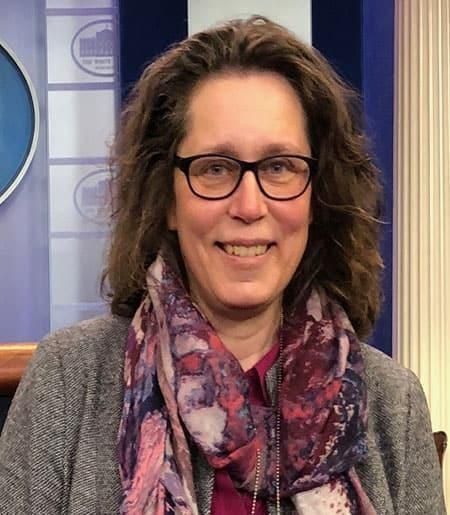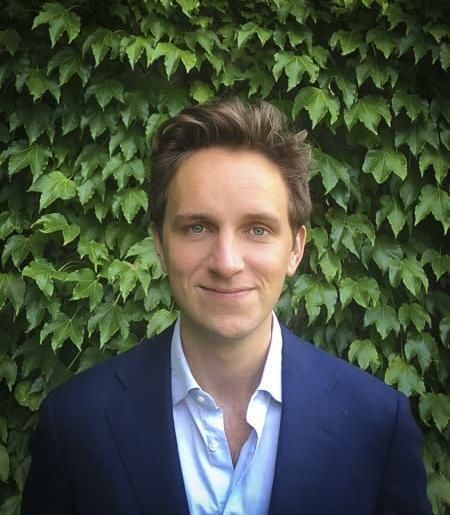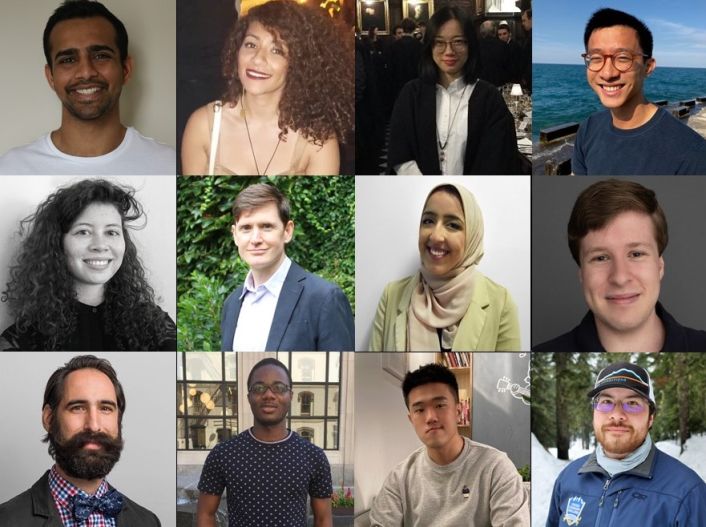Reppy Institute for Peace and Conflict Studies
Patricia Young

Senior Program Manager
Patricia Young is the Senior Program Manager for the Institute for European Studies and the Reppy Institute for Peace and Conflict Studies. She has a doctorate in Political Science from Rutgers University and a master's in Economics from the University of Victoria, Canada. She wrote her dissertation on market and democratic reforms in Eastern Europe and the process of European Union enlargement. She came to Cornell in 2019 as a lecturer in Sociology and Government, teaching on the Transformation of Socialist Societies. Patricia has previously lectured at Stanford since 2010.
Additional Information
The Politics of Maps: Cartographic Constructions of Israel/Palestine

February 10, 2022
11:25 am
Dr. Christine Leuenberger will discuss her book, The Politics of Maps: Cartographic Constructions of Israel/Palestine, published by the Oxford University Press. This book explores map war in Israel/Palestine - how the geographical sciences become entangled with politics, territorial claim making, and nation-state building in Israel/Palestine. The book also investigates how society and politics shape map-making and how various actors, institutions, and governments rely on the powerful visual rhetoric of maps in order to engage in geopolitics. To learn more, read this article in the Cornell Chronicle.
About the speaker
Dr. Christine Leuenberger is a Senior Lecturer in the Department of Science & Technology Studies. Her research focuses on qualitative methods, sociology of medicine, classical and contemporary sociological theory, sociology of knowledge, interactional sociology, sociology of culture, transformation studies of Eastern Europe, Middle Eastern Studies, Peace Studies, and the sociology and history of the human and behavioral sciences. She is also engaged in peace and educational initiatives in conflict regions in the Middle East and Sub-Saharan Africa.
This conversation is part of the spring seminar series with the Reppy Institute for Peace and Conflict Studies (PACS).
Additional Information
Program
Einaudi Center for International Studies
Reppy Institute for Peace and Conflict Studies
Nuclear Freeze documents digitized

Matt Evangelista, Agnes Nimark, Judith Reppy (PACS)
Cornell University Library launches online collection of anti-nuke pioneer, Randall Forsberg.
Additional Information
U.S. Could Utilize Rule to Stop High-Tech Exports to Russia

Eswar Prasad, SAP
“The U.S. is hoping Russia has learned the lesson through the Huawei example,” says Eswar Prasad, professor of economics and international trade policy.
Additional Information
Topic
- Development, Law, and Economics
Program
The Economic Weapon: The Interwar Rise of Sanctions

February 3, 2022
11:25 am
Prof. Nicholas Mulder provides a history of the interwar origins of economic sanctions, showing how they reconfigured international affairs by enabling distant coercion against civilian societies in peacetime. Based on wartime blockade practices, the instrument of sanctions offered a novel way to prevent war.
This presentation is based on his first book, The Economic Weapon: The Rise of Sanctions as a Tool of Modern War, recently published in January 2022 by Yale University Press.
About the speaker
Nicholas Mulder is an Assistant Professor of History at Cornell University. He works on European and international history from 1870 to the present. His research focuses on political, economic, and intellectual history, with particular attention to the era of the world wars between 1914 and 1945.
This seminar is part of the spring seminar series with the Reppy Institute for Peace and Conflict Studies (PACS).
Additional Information
Program
Einaudi Center for International Studies
Reppy Institute for Peace and Conflict Studies
Call for Proposals: Interdisciplinary Approaches to Peace and Conflict Studies

PACS Graduate Student Conference
Proposals due February 20, 2022
We encourage you to submit an abstract if your work seeks to answer questions pertaining to global peace and conflict using innovative methods, novel theoretical applications, and creative interdisciplinary approaches.
About the Conference
Cornell University’s 2021-2022 Judith Reppy Institute for Peace and Conflict Studies Graduate Fellows are pleased to announce the fifth annual Reppy Institute graduate student conference, to be held on Saturday, April 23, 2022. We hope to elicit submissions from graduate students whose work seeks to answer questions pertaining to global peace and conflict using innovative methods, novel theoretical applications, and creative interdisciplinary approaches.
This conference invites submission of abstracts from graduate students from fields including, but not limited to, government, sociology, history, science and technology studies, anthropology, philosophy, law, and communications. Topics should be related to the Reppy Institute’s interest in the problems of war and peace, arms control and disarmament, and instances of collective violence.
Questions that we expect to be useful for developing abstracts for this conference include, but are not limited to:
- How do law, technology, peace, and conflict intersect, both conceptually and in historical or contemporary contexts?
- How have national/international legal structures been used to mediate conflicts and define peace?
- How have technologies been deployed in peace/conflict scenarios?
- How do specific technological artifacts or systems embody the politics of peace or conflict?
Submit your application via the conference website.
The deadline for submissions is February 20, 2022. Submissions should include a 300- to 500-word abstract explaining the topic, theoretical framework, methodology, implications of the scholarship, and a brief statement highlighting the interdisciplinary nature of the work. Scholars whose submissions are accepted will be notified by March 1, 2022. Participants will be offered a modest stipend of up to $500 to defray their expenses for travel, room, and board.
Questions? Contact the conference organizers.
Additional Information
Applications open for Davis Projects for Peace
Apply by January 31
Undergraduate summer funding available through Davis Projects for Peace to design grassroots projects anywhere in the world which promote peace.
Additional Information
Migration in the Age of Pandemics (Lund Critical Debate)

February 16, 2022
9:30 am
The spread of the COVID-19 pandemic has strained the world's healthcare systems and compounded challenges for governments and NGOs dealing with global waves of forced and voluntary migration. These movements of peoples across borders have magnified pressing issues ranging from social and economic inequalities and global climate change to civil war and political unrest. In the United States and worldwide, how can we promote the best public health outcomes while working to protect human rights, manage resources, and address inequality?
With a focus on the intersection of mobility, human rights, and public health, the Einaudi Center's Lund Critical Debate this year brings together one of the world's leading public health policymakers at the World Health Organization with a United States Senator and Chair of the Senate Foreign Relations Committee, who led the Senate's efforts to study the consequences of global forced migration. The event will examine the geopolitical dimensions, the epidemiological aspects, and the humanitarian issues of this critical topic. The debate will illuminate key issues surrounding public health, migration, and racial and social justice at stake globally and nationally.
We welcome questions during the event. Registration is required.
Panelists
Dr. Zsuzsanna Jakab serves as Deputy Director-General of the World Health Organization (WHO), the United Nations agency dedicated to promoting public health and responsible for responding to health emergencies. Prior to her current appointment, Dr. Jakab has held several high-profile national and international public health policy positions: as WHO Regional Director for the European Region (2010-2019); as Founding Director of the European Centre for Disease Prevention and Control (2005-2010); and as State Secretary at the Hungarian Ministry of Health, Social, and Family Affairs (2002-2005), where she managed the country’s preparations for European Union accession in the area of public health.
Sen. Bob Menendez (D-NJ). The son of Cuban immigrants, Sen. Menendez has represented the state of New Jersey in the United States Senate since 2006. As Chairman of the Senate Foreign Relations Committee, he has established himself as a foreign policy leader, seeking to do globally what he has done in New Jersey—supporting the most vulnerable in our society and lending a voice to those least able to speak for themselves. In June 2020, under his leadership, the committee published the report, "Global Forced Migration: The Political Crisis of Our Time." He helped pass the Senate's COVID relief packages and other healthcare legislation as well as playing a key role in shaping immigration reform bills. Prior to his position in the Senate, he served in the U.S. House of Representatives from 1993-2006.
Moderator
Dr. Gunisha Kaur is an assistant professor of anesthesiology who specializes in human rights research. Dr. Kaur serves as the Founding Director of the Human Rights Impact Lab, a Medical Director of the Weill Cornell Center for Human Rights, and a Faculty Fellow at the Mario Einaudi Center for International Studies, where she co-leads the migrations research team. Dr. Kaur’s research interests focus on advancing the health of displaced populations such as migrants, refugees, and asylum seekers. She has used her extensive training and research in neuroscience as an analytical framework to pioneer the study of human rights through scientific methodology. Her research is currently funded by the National Institutes of Health. A foremost leader in scientific investigations into migrant health, Dr. Kaur was selected as a member of the Sigma Xi Scientific Research Honor Society and as a Stephen M. Kellen Term Member at the Council on Foreign Relations. She earned her B.S. from Cornell University in 2006, M.D. from Weill Cornell Medical College in 2010, and her M.A. in medical anthropology from Harvard University in 2015.
About the Debate
This year's Lund Critical Debate is hosted by the Mario Einaudi Center for International Studies and co-sponsored by Migrations: A Global Grand Challenge and in partnership with the Institute of Politics and Global Affairs, with production assistance from eCornell. Established in 2008, Einaudi's Lund Critical Debate Series is made possible by the generosity of Judith Lund Biggs ’57.
Additional Information
Program
Einaudi Center for International Studies
Reppy Institute for Peace and Conflict Studies
East Asia Program
Southeast Asia Program
Latin American and Caribbean Studies
Institute for African Development
Institute for European Studies
South Asia Program
Info Session: Fulbright U.S. Student Program for Undergraduates

March 30, 2022
4:45 pm
The Fulbright U.S. Student Program supports college graduates conducting research or teaching in any field in more than 150 countries. Applications are due in the fall; students who wish to begin the program immediately after graduation are encouraged to start the process in their junior year.
United States citizens in any field of study are eligible.
Contact: fulbright@einaudi.cornell.edu, https://einaudi.cornell.edu/fulbright-us-student-program
Additional Information
Program
Einaudi Center for International Studies
Reppy Institute for Peace and Conflict Studies
East Asia Program
Southeast Asia Program
Latin American and Caribbean Studies
Institute for African Development
Institute for European Studies
South Asia Program
Info Session: Migration Studies Minor

March 9, 2022
4:45 pm
The migration studies minor is a university-wide, interdisciplinary undergraduate minor that prepares students to understand the historical and contemporary contexts and factors that drive international migration and shape migrant experiences around the globe. This minor draws on the rich course offerings found across the humanities and social sciences at Cornell, and is designed to draw students outside of their major fields and to extend their knowledge beyond a single country.
Contact: migration-minor@einaudi.cornell.edu,
Additional Information
Program
Einaudi Center for International Studies
Reppy Institute for Peace and Conflict Studies
East Asia Program
Southeast Asia Program
Latin American and Caribbean Studies
Institute for African Development
Institute for European Studies
South Asia Program
